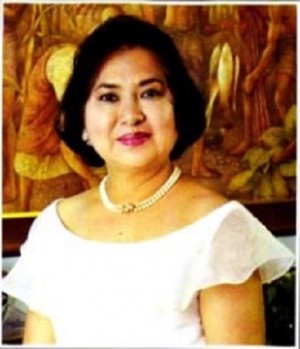MANILA, Philippines—The Commission on Audit has called on the Department of Budget and Management to tighten the purse strings by limiting the participation of legislators in the identification of projects to be funded by congressional pork barrel funds and ensure that such projects meet the terms of the budget, or the General Appropriations Act.
This was part of a host of recommendations that the COA made in the special audit it conducted on the congressional pork barrel that showed massive waste and loss of public funds through projects chosen by legislators to be funded from their pork barrel allotments—under the Priority Development Assistance Fund (PDAF) and various infrastructures including local projects (VILP).
The COA asked the DBM to issue specific and stringent guidelines on the use of the pork barrel and the participation of the non-governmental organizations in the implementation of projects funded by it.
For House representatives, in particular, the COA recommended that they limit project coverage within their respective districts or sectors.
The COA also recommended the blacklisting of erring NGOs, the immediate investigation of all persons involved and the filing of appropriate administrative and criminal charges against all those who connived to steal the funds.
The funding for the projects identified by legislators is included in the national budget as a lump-sum appropriation under the PDAF and VILP.
PDAF is intended to fund “soft” projects under the category of education, health, livelihood, social services, financial assistance to address specific pro-poor programs, peace and order, historical, cultural and arts, as well as small infrastructure projects like irrigation, rural electrification, water supply, housing and forest management.
VILP are described as “hard” projects under the category of public works.
Each senator has an annual allocation of P100 million for soft projects and another P100 million for hard projects, for a total of P200 million.
Each district representative and party-list member is allocated P30 million for soft projects and P40 million for hard projects, or a total of P70 million, each year.
The Special Audit covered PDAF and VILP released from 2007 to 2009 to three national government agencies, four government corporations, five provincial governments and eight city governments, including 109 of their barangays.
These were the Department of Agriculture, the Department of Public Works and Highways, the Department of Social Welfare and Development, the Technology and Livelihood Resource Center, the National Livelihood Development Corp., National Agribusiness Corp., the Zamboanga del Norte Agricultural College Rubber Estate Corp.; The cities of Mandaluyong; Manila, including 12 barangays; Quezon City, including 94 barangays; Taguig, including 3 barangays; Las Piñas; Tabaco, Albay; Iriga and Naga, Camarines Sur; Panabo, Davao del Norte; and the provincial governments of Tarlac, Bataan, Nueva Ecija, Compostela Valley and Davao Oriental.
According to the COA, these agencies were selected for audit based on the magnitude of releases made to them in the national expenditure program.
The audit focused on four major areas: allocation of funds and monitoring by the DBM of fund releases; implementation of livelihood and other soft projects; implementation of infrastructure projects; and financial assistance and other charges by local government units.
According to the audit report, the DBM failed to keep proper records of, and efficiently monitor, the releases of each legislator, so that it could not provide a complete schedule despite repeated requests.
